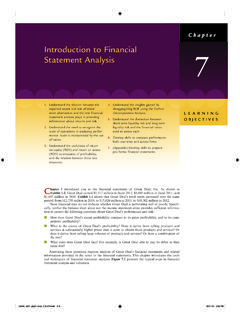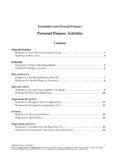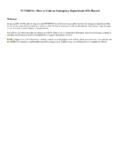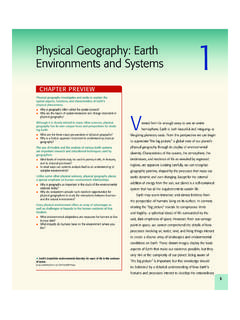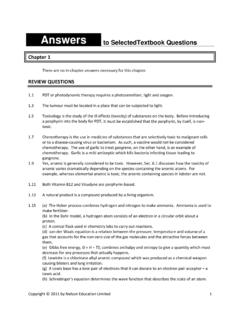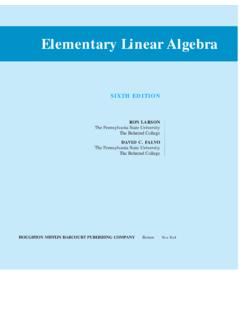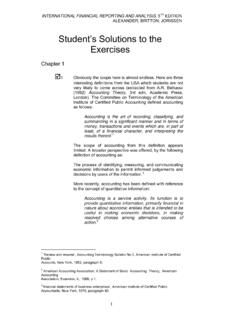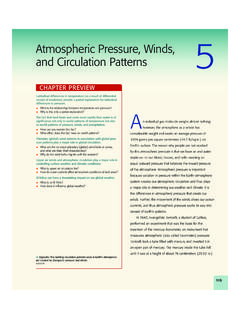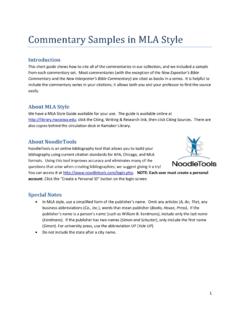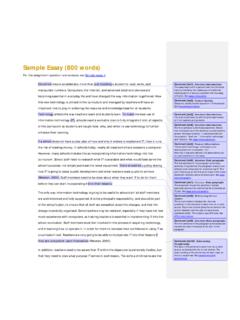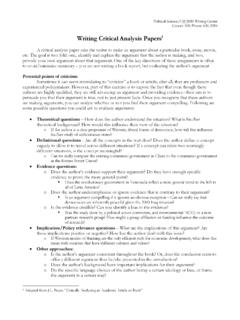Transcription of WRITING LITERARY ARGUMENTS - Cengage
1 79 CHAPTER5 WRITING LITERARY ARGUMENTSMost of the essays you write about literature are expository that is, you writeto give information to readers. For example, you might discuss the rhyme or me-ter of a poem or examine the interaction of two characters in a play. (Most of thestudent essays in this book are expository.) Other essays you write may be liter-ary ARGUMENTS that is, you take a position on a debatable topic and attempt tochange readers minds about it. The more persuasive your argumentative essay,the more likely readers will be to concede your points and grant your you write a LITERARY argument, you follow the same process you do whenyou write any essay about a LITERARY topic. However, because the purpose of an ar-gument is to convince readers, you need to use some additional strategies to pres-ent your a Debatable TopicFrequently, an instructor will assign a topic or specify a particular LITERARY work foryou to discuss.
2 Your first step will be to decide exactly what you will write an argumentative essay attempts to change the way readers think, it mustfocus on a debatable topic, one about which reasonable people may disagree. Fac-tual statements statements about which reasonable people do notdisagree are therefore inappropriate as topics for Statement:Linda Loman is Willy Loman s long-sufferingwife in Arthur Miller s play Death of Topic:More than a stereotype of the long-sufferingwife, Linda Loman in Arthur Miller s playDeath of a Salesmanis a addition to being debatable, your topic should be narrow enough for you todevelop within your page limit. After all, in an argumentative essay, you will havePlanning a LITERARY Argument80 Chapter 5 WRITING LITERARY Argumentsto present your own ideas and supply convincing support while also pointing outthe strengths and weaknesses of opposing ARGUMENTS .
3 If your topic is too broad,you will not be able to discuss it in enough , your topic should be interesting. Keep in mind that some topics such as the significance of the wall in Robert Frost s poem Mending Wall havebeen written about so often that you will probably not be able to say anything verynew or interesting about them. Instead of relying on an overused topic, choose onethat enables you to write something an Argumentative ThesisAfter you have chosen your topic, your next step is to state your position in an ar-gumentative thesis one that takes a strong stand. Properly worded, this thesisstatement will lay the foundation for the rest of your way to make sure that your thesis actually does take a stand is to formu-late an antithesis a statement that takes an arguable position opposite fromyours.
4 If you can construct an antithesis, you can be certain that your thesis state-ment takes a stand. If you cannot, your thesis statement needs further revision tomake it argumentative Statement:The last line of Richard Wright s shortstory Big Black Good Man indicates thatJim was fully aware all along of Olaf sdeep-seated racial :The last line of Richard Wright s short story Big Black Good Man indicates that Jim remainedunaware of Olaf s feelings toward possible, test your argumentative thesis statement on your class-mates either informally in classroom conversations or formally in a peer-re-view session. CHECKLIST Developing an Argumentative ThesisCan you formulate an antithesis?Does your thesis statement make clear to readers what position you aretaking?
5 Can you support your thesis with evidence from the text and fromresearch? Planning a LITERARY Argument81 Defining Your TermsYou should always define the key terms you use in your argument. For example, ifyou are using the term narrator in an essay, make sure that readers know you arereferring to a first-person, not a third-person, narrator. In addition, clarify the dif-ference between an unreliable narrator someone who misrepresents or misin-terprets events and a reliable narrator someone who accurately describesevents. Without a clear definition of the terms you are using, readers may have avery difficult time understanding the point you are Your TermsBe especially careful to use precise terms in your thesis vague and judgmental words, such as wrong, bad, good, right,and :The poem Birmingham Sunday (September 15,1963) by Langston Hughes shows how bad racismcan :The poem Birmingham Sunday (September 15,1963) by Langston Hughes makes a movingstatement about how destructive racism can Your AudienceAs you plan your essay, keep your audience in mind.
6 For example, if you are writ-ing about a work that has been discussed in class, you can assume that your read-ers are familiar with it; include plot summaries only when they are needed to ex-plain or support a point you are making. Keep in mind that you will be addressingan academic audience your instructor and possibly some students. For this rea-son, you should be sure to follow the conventions of WRITING about literature aswell as the conventions of standard written English (for information on the con-ventions of WRITING about literature, see the checklist in Chapter 2, p. 000.) When you write an argumentative essay, always assume that you are address-ing a skeptical audience. Remember, your thesis is debatable, so not everyone willagree with you and even if your readers are sympathetic to your position, youcannot assume that they will accept your ideas without question.
7 The strategies you use to convince your readers will vary according to your re-lationship with them. Somewhat skeptical readers may need to see only that yourargument is logical and that your evidence is solid. More skeptical readers, how-ever, may need to see that you understand their positions and that you concedesome of their points. Of course, you may never be able to convince hostile read-ers that your conclusions are legitimate. The best you can hope for is that thesereaders will acknowledge the strengths of your argument even if they remain skep-tical about your Opposing ArgumentsAs you develop your LITERARY argument, you may need to refute that is, to dis-prove opposing ARGUMENTS by demonstrating that they are false, misguided, orillogical.
8 By summarizing and refuting opposing views, you more opposing argu-ments seem less credible to readers; thus, you strengthen your case. When an op-posing argument is so strong that it cannot be easily dismissed, however, youshould concede the strength of the argument and then point out its limitations. Notice in the following paragraph how a student refutes the argument thatHomer Barron, a character in William Faulkner s short story A Rose for Emily, is gay. A number of critics have suggested that HomerBarron, Miss Emily s suitor, is gay. Certainly, thereis some evidence in the story to support thisinterpretation. For example, the narrator points outthat Homer liked the company of men (Faulkner 000)and that he was not a marrying man (Faulkner 000).
9 Inaddition, the narrator describes Homer as wearingyellow gloves when he took Emily for drives. Accordingto the critic William Greenslade, in the 1890s yellowwas associated with homosexuality (24). This evidence,however, does not establish that Homer is gay. Duringthe nineteenth century, many men preferred the companyof other men (as many do today). This, in itself, didnot mean they were gay. Neither does the fact thatHomer wore yellow gloves. According to the narrator,Homer was a man who liked to dress well. It iscertainly possible that he wore these gloves to impressMiss Emily, a woman he was trying to Your LITERARY ArgumentMany LITERARY ARGUMENTS are built on assertions statements made about a de-batable topic backed by evidence supporting examples in the form of refer-ences to the text, quotations, and the opinions of LITERARY critics.
10 For example, ifyou stated that Torvald Helmer, Nora s husband in Henrik Ibsen s play A DollHouse, is as much a victim of society as his wife is, you could support this assertionwith relevant quotations and examples from the play. You could also paraphrase,summarize, or quote the ideas of LITERARY critics who also hold this opinion. Re-member, only assertions that are self-evident(All plays includecharac-Using Evidence Effectively82 Chapter 5 WRITING LITERARY ArgumentsOpposingargumentConcessionRefut ationUsing Evidence Effectively83 Establishing CredibilitySome people bring credibilitywith them whenever they write. When a well-known LITERARY critic evaluates the contributions of a particular writer, you can as-sume that he or she speaks with authority.)
